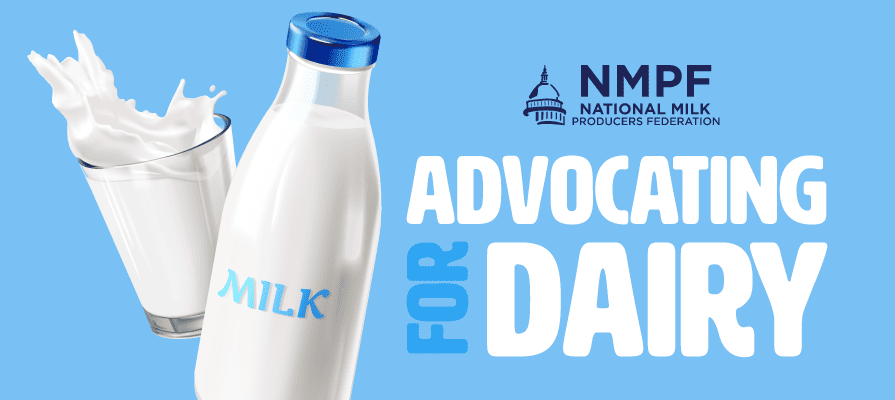
Taking a stand in front of a selective committee, the association joins an Olympic medalist to highlight category benefits.
A team-up of Olympic proportions has taken place in the dairy industry. The National Milk Producers Federation’s (NMPF) Regulatory Affairs Director Miquela Hanselman has joined Olympic athlete and dairy farmer Elle St. Pierre to share with the government’s Dietary Guidelines Advisory Committee how dairy is a critical component of the diet and that it should be considered in light of its full range of benefits in comments made today before the panel.
 Miquela Hanselman, Regulatory Affairs Director, National Milk Producers Federation“Nearly 90 percent of Americans don’t consume the recommended servings of dairy,” said Hanselman. “Dairy products have always been an integral part of the dietary guidelines. Milk is a good or excellent source of 13 essential nutrients, including calcium, potassium, and vitamin D, three of the four nutrients of public health concern.”
Miquela Hanselman, Regulatory Affairs Director, National Milk Producers Federation“Nearly 90 percent of Americans don’t consume the recommended servings of dairy,” said Hanselman. “Dairy products have always been an integral part of the dietary guidelines. Milk is a good or excellent source of 13 essential nutrients, including calcium, potassium, and vitamin D, three of the four nutrients of public health concern.”
Hanselman and St. Pierre, a farmer-member of the Dairy Farmers of America cooperative and a world medalist track athlete who represented the United States in the women’s 1,500-meter race in the 2021 Tokyo Olympics, both offered their perspectives on dairy’s role in diet before the panel that will shape the scientific report informing the 2025–2030 Dietary Guidelines for Americans. Both Hanselman and St. Pierre hold degrees in nutrition and public health.
The hearing is part of the committee’s information-gathering process for the next set of guidelines. As noted in the release, the Dietary Guidelines Advisory Committee is convened every five years by the Department of Agriculture and the Department of Health and Human Services to make recommendations for American diets, affecting numerous federal nutrition programs.
 The National Milk Producers Federation has tapped Olympic athlete Elle St. Pierre to advocate for dairy in front of the government’s Dietary Guidelines Advisory Committee
The National Milk Producers Federation has tapped Olympic athlete Elle St. Pierre to advocate for dairy in front of the government’s Dietary Guidelines Advisory Committee
“With the scientific question focused on sources of saturated fats, this committee has the opportunity to remedy a previous oversight and include the newer science on dairy fats and the dairy matrix,” Hanselman said. “Dairy foods, regardless of fat level, appear to have either neutral or beneficial effects on chronic disease risks including cardiovascular disease, type 2 diabetes, obesity, and stroke. This committee shouldn’t default to the overly broad recommendation to avoid saturated fats regardless of food source.”
More information can be found here.























